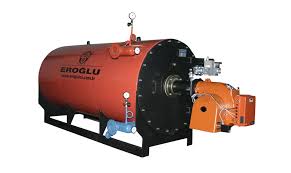
डिस . 06, 2024 14:53 Back to list
Comparison of Thermal Oil Boilers and Steam Boilers for Industrial Applications
Thermal Oil Boiler vs. Steam Boiler A Comprehensive Comparison
In industrial applications, the choice of a heating system is pivotal for efficiency and functionality. Among the various types of boilers available, thermal oil boilers and steam boilers are prominent. Both serve the critical purpose of generating heat for various processes, but they operate under different principles and have distinct advantages and disadvantages. This article explores the differences between thermal oil boilers and steam boilers, helping industries make informed decisions tailored to their specific needs.
Definitions and Working Principles
A thermal oil boiler uses thermal oil as its heat transfer medium. In this system, a heat exchanger heats the oil directly, which then circulates through the piping system to transfer energy to various equipment or processes. The oil maintains a stable temperature, allowing for efficient heat transfer at lower pressures. These boilers can achieve high operating temperatures (over 300°C or 572°F) without the accompanying risks associated with high-pressure steam.
Steam boilers, on the other hand, operate by boiling water to create steam, which is then transported and utilized for heating or driving turbines. Typical steam generation operates at pressures between 10 to 20 bar, facilitating high-temperature steam suitable for various industrial processes.
Efficiency and Performance
Both types of boilers offer distinct advantages in terms of efficiency. Thermal oil boilers can achieve high thermal efficiencies, often over 90%, by utilizing heat transfer oil that doesn’t require large amounts of energy to reach elevated temperatures. This makes them ideal for processes needing consistent heat over extended periods.
Steam boilers, however, are more versatile in certain applications. They are capable of generating steam on demand, making them suitable for industries with fluctuating heat requirements. Their efficiency can also be quite high, typically between 80-90%; however, the generation of steam introduces additional energy losses during the process.
Safety Considerations
Safety is a critical factor when selecting a boiler. Thermal oil systems operate at lower pressures, which inherently reduces the risk of catastrophic failures or explosions. The thermal oil itself is non-toxic and stable, decreasing the risk of leaks compared to steam systems, which require maintaining high-pressure levels, necessitating robust safety protocols and regular inspections.
thermal oil boiler vs steam boiler

Conversely, steam boilers operate under high pressure, which, while manageable with modern technology, can pose significant risks if not properly maintained. The potential for steam explosions and scalding are serious concerns in steam boiler operations, making a stringent adherence to safety regulations imperative.
Maintenance and Operating Costs
Maintenance requirements differ between thermal oil and steam boilers. Thermal oil boilers generally require less frequent maintenance due to their closed-loop system and lower operating pressures. However, the oil may need to be replaced periodically and monitored for degradation, which adds to operational costs.
Steam boilers, while they have established maintenance protocols, often require more frequent checks and are generally more complex due to various components such as pressure valves, blow-off systems, and water treatment systems. The operating costs can be higher because of water treatment and the need for chemical additives to prevent corrosion and scaling.
Applications
The choice between thermal oil and steam boilers ultimately depends on the specific industrial application. Thermal oil boilers are ideal for processes requiring consistent heat at higher temperatures, such as in the chemical and food processing industries. They are also extensively used in applications like drying and curing.
Steam boilers are suitable for power generation and numerous industrial processes that require steam, including heating, cooking, and sterilization. Their flexibility makes them a staple in industrial settings where steam is necessary.
Conclusion
In summary, both thermal oil boilers and steam boilers have their unique advantages and drawbacks. The decision on which boiler to choose will depend on the specific heat requirements, safety considerations, maintenance capacity, and operational costs associated with a particular application. By understanding their functions and characteristics, industries can optimize their heating systems for improved efficiency and safety.
-
Efficient Biomass Fired Hot Water Boiler | AI Heating Solution
NewsAug.01,2025
-
High-Efficiency Gas Thermal Oil Boilers | HPT Models
NewsJul.31,2025
-
Oil Fired Hot Water Boilers Sale - High Efficiency & Affordable
NewsJul.31,2025
-
High-Efficiency Commercial Oil Fired Steam Boiler for Industry
NewsJul.30,2025
-
High-Efficiency Biomass Fired Thermal Oil Boiler Solutions
NewsJul.30,2025
-
High Efficiency Gas Fired Thermal Oil Boiler for Industrial Heating
NewsJul.29,2025
Related PRODUCTS






















